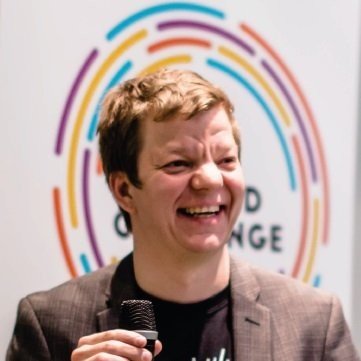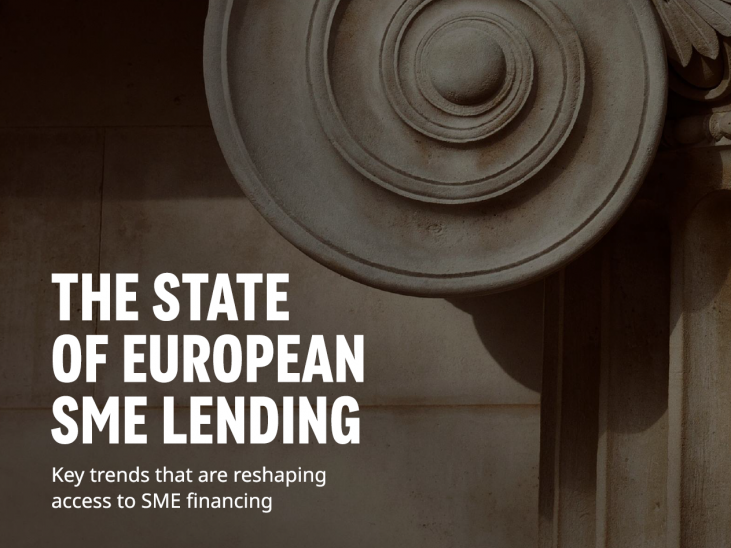6 Questions about digital sustainability to… Teemu Ropponen, MyData Global

MyData Global is an award-winning international non-profit that furthers the rights of people and organisations over their personal data. Here, Teemu Ropponen, director of sales and business development, discusses the link between personal data and digital sustainability, and shares his advice for how organisations can start – and subsequently accelerate – their own transformation to contribute to a sustainable digital society for all.
"I prefer to think of data as the new soil rather than the new oil"
How would you define digital sustainability, and why is it so important for MyData Global?
At MyData Global, our aim is to help people and organisations benefit from personal data in a human-centric way, to create a fair, sustainable and prosperous digital society for all. In my view, that’s a good definition of digital sustainability from the personal data perspective, although that is of course ‘only’ one element of digital sustainability. The topic of sustainability in general is very important to us. As part of refining our strategy, we recently investigated which of the Sustainable Development Goals we’re most aligned with and we identified at least three or four key SDGs in which the application and reuse of personal data – and therefore digital sustainability – is highly relevant. Although MyData Global was founded just four years ago, the concept of MyData has actually been around for much longer – about a decade – and originated within the open data community. It is based on the idea that data holds the key to value creation. New innovations and improved digital services based on the sharing and usage of personal data can achieve real benefits, but we believe that this personal data must be used in an ethical, fair, sustainable and human-centric way. In fact, digital sustainability is relevant to all three shifts that are outlined in the MyData Declaration, which is a cornerstone of MyData philosophy. The first one is the exercise of personal rights, and by that I mean one-click, real-time rights rather than the formal, clumsy, legal rights that we typically see currently. The second shift is to empower individuals rather than ‘just’ protect them. Giving people agency is a key part of digital sustainability. And thirdly, we are aiming to create a sustainable business landscape, which means replacing today’s closed ecosystems with open, competitive and collaborative ecosystems. It is very important to break away from the current tech monopolies so that people have a real ability to choose. In turn, this will drive the development of better services and a healthier, more vibrant economy.
To what extent is the topic of digital sustainability already ‘top of mind’ among your members and society in general?
It can be hard to measure whether something is ‘top of mind’, but what I can say is that all our members are required to sign the MyData declaration and commit to our principles and vision of a fair, sustainable and prosperous digital society. This in itself is proof that they share our high-level goal. For me, the fact that our membership base comprises over a hundred organisations and 400 data experts from over 40 countries – and continues to grow – shows that this topic is increasingly on the agenda for governments and businesses. In terms of society in general, I think the concept of digital sustainability is gaining more traction, even if ‘digital sustainability’ is not yet a household name. For example, people are increasingly becoming aware of the problems and risks associated with the misuse of data, and are also understanding the dangers of an uncompetitive and therefore unsustainable business landscape in which a handful of ‘tech oligarchs’ control the digital world. I regard the European Data Strategy as an important and beneficial development as it supports the ‘skilling up’ of Europe by investing in the European tech sector to give us more diversity and more strategic autonomy. This will make us less reliant on the current BigTechs which will result in more resilience and therefore more sustainability.
What has MyData Global been doing to get the topic of digital sustainability onto the agenda?
Firstly, we are of course very proud that MyData was mentioned in the European Data Strategy as a promising initiative that has many benefits for not only individuals, but also for businesses and society at large. At a local level, MyData Global is working to get digital sustainability onto the agenda of all kinds of organisations. Elements of MyData are finding their way into the policies and strategies of not only businesses, but also cities and regional governments, all over the world – from the Netherlands, Flanders, Sweden and Finland in Europe, to Japan and Korea in Southeast Asia. And this geographic diversity is important because these issues are not specific to a particular area or economy; they are relevant all around the world and tackling them calls for a joint approach. Therefore, on an international level, we’re involved in numerous initiatives and events, including together with The World Bank, the United Nations, the World Trade Organisation, the Internet Governance Forum and the Freedom Online conference. We also work with Unicef on the topic of children’s rights relating to personal data… cross-generational sustainability, so to speak. Besides that, we’re involved in various kinds of advocacy work, especially in relation to the ‘tsunami’ of new data legislation that’s coming in the EU. For example, the Data Act is important to enable data from IoT devices to be repurposed and reused in many different ways. In terms of the Data Governance Act, from a data sustainability perspective it’s key to create a fair competitive landscape. Just as we wouldn’t want a world in which there’s only a handful of telecom operators or banks to choose from, the aim is to promote a diverse choice of organisations to stimulate the development of high-quality services. Additionally, we believe it’s important to ensure that the personal data intermediaries – or what we call ‘MyData Operators’ – are properly regulated. Last but not least, the EU is investing quite heavily in data sharing ecosystems, called ‘data spaces’, and we’re part of a key initiative called the Data Space Support Centre. Primarily, our role there is focused on making sure that human centricity is taken into account in the development of these data spaces.
Which indicators can be used to monitor digital sustainability?
Digital sustainability is still some way behind compared with environmental sustainability, for which indicators such as carbon footprints and electricity usage are starting to get some traction, but finding better indicators is definitely one of our goals moving forwards. As part of this, we’ve been running a programme called the MyData Operator Awards for personal data intermediaries. To be considered for the award, organisations must first be MyData members and sign the MyData Declaration. They are then required to demonstrate their human-centricity, transparency about the use of personal data, interoperability, and how they empower people by giving them control over their personal data. Later this year, we will be expanding our awards programme to cover the end-user services in addition to the intermediaries themselves. And in time, a European-wide trust mark or certification scheme will be developed for personal data intermediaries, as stipulated in the EU Data Governance Act. You could see the number of intermediaries or services with a MyData Operator Award, and in the longer term with the European certificate – or the number of users plugged into such services – as an indicator of the perceived importance of digital sustainability, at least from a personal data perspective.
Can you share some examples of how digital sustainability is already being put into practice successfully?
Depending on their specific type of organisation, our members approach the topic of digital sustainability and personal data from various different angles. In terms of businesses, Fujitsu is a great champion of making digital sustainability part of its broader sustainability strategy and policies. As part of its strong strategic focus on the SDGs, the company is not only constantly developing digitally sustainable products, but also hosts various types of informative sessions on how the SDGs can be implemented utilising digital technology. When it comes to governments and municipalities, Helsinki is one good example of a city that is taking the lead in this. The city is working to develop trust between itself and its citizens by being more transparent about how it uses people’s personal data and by showing that the gathered data is used and reused as effectively as possible – it aims for its data to be the most used in the world, in fact. I applaud any initiatives aimed at improving administrative processes and reducing bureaucracy to save people’s time as well as taxpayers’ money. Meanwhile in the Flanders region of Belgium, a whole data utility company is being set up to provide the infrastructure that allows individuals to better manage their personal data. And in the French city of Lyon, MyData tools are being used to monitor and gamify people’s use of electricity, gas and water in a tangible effort to reduce the overall carbon footprint of its residents and their families. Personal data is relevant across so many different domains, from energy and smart cities to education, that there are countless ways in which MyData can help to put digital sustainability into practice effectively.
What would be your call to action for organisations?
As with any transformation, digital sustainability cannot be achieved overnight. Many organisations are not actually aware of their current digital sustainability level and which of their practices are unsustainable. So the first place to start, before even trying to make any changes, is to become more mindful and transparent about your current practices. The next step is to recognise that digital sustainability is not only about your image and trying to be perceived as doing the right thing in line with the latest trends and expectations; sharing personal data ethically also holds enormous business potential. By leveraging the existing data about your customers or users better, with their consent of course – and perhaps augmenting that with data from other services and sources – you can provide better and more personalised services or more up-to-date information. More broadly, the move towards digital sustainability is part of a huge paradigm shift that is underway at the environmental or ‘traditional sustainability’ level. For example, companies like Patagonia are proof that it is possible to successfully balance the three P’s of people, planet and profit. And even the oil companies are gradually increasing the portion of their business related to renewable energy. On the topic of oil, I believe the analogy of data as ‘the new oil’ has been very harmful; it has led to the data being hoarded rather than shared and enriched. I prefer to think of data as the new soil. Soil gives life to crops that can form the basis for the development of interesting and innovative food products further along the value chain. So in the spirit of sustainability, if there has to be an analogy for data, please let’s start calling it the new soil instead of the new oil!



